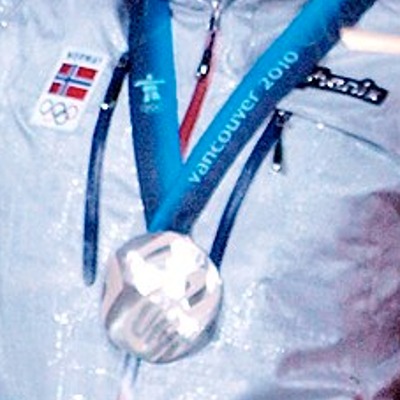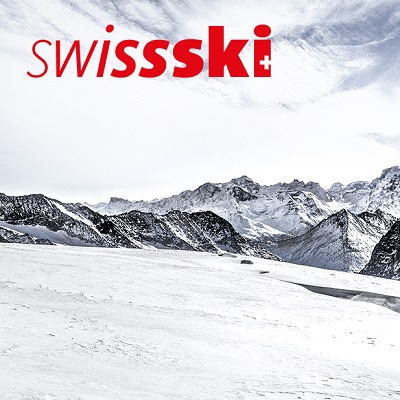Women’s Parallel Gold For Tviberg, Men’s Goes To Schmitd

New champion Tviberg has never been on a World Cup podium in 75 starts. The new women’s Parallel world champion Maria Therese Tviberg has gone through just about every emotion possible in the past 24 hours.
The 28-year-old, who has never been on a World Cup podium before, was a huge part of driving Norway to the semi-final of the Team Parallel on Tuesday. Then, with a first World Championship medal within her grasp, Tviberg fell heavily and was ruled out of the final. Watching on from the sidelines, she could only watch as Norway lost out on gold in agonising fashion in the final race of the day.
Fast-forward 24 hours and, having patched up her bruised body, Tviberg flew through the rounds of the women’s parallel, before dominating three-time world champion Wendy Holdener in the final.
“I’ve never had a (individual) medal before and just to do that is amazing and then a gold on top of that, you can hear my voice is shaking. I always have stuff to say and I am speechless,” a smiling Tviberg said, having powered to a 0.67 victory margin over silver medallist Holdener.
The new champion then explained just how she had climbed off the snow and on to the top of the podium.
“I was lucky I had a back protector on and I landed on my back so I am just a little bruised,” Tviberg said. “But now I have so much adrenaline and it’s super warm here so it’s all good.”
Her skiing throughout the competition was better than “good”. Powerful from the off, she took her first major scalp in the quarter-finals, roaring past recent World Cup slalom winner Lena Duerr. Next up, she faced teammate Thea Louise Stjernesund and produced one of the runs of the day to come from behind in the second leg to beat the eventual bronze medallist by 0.06 seconds.
And when it all really mattered, Tviberg proved to herself and the rest of the world that she is a force to be reckoned with, leaving Holdener, one of the all-time greats, in her wake.
“After I qualified for the final I cried the whole way up and (when) I came to the top I was still crying and he (her coach) looked me in the eyes and (said) ‘breathe, you got this’. And I was like, ‘yeah, I got this’,” Tviberg said, the emotion still clear in her voice.
For Holdener it is a second silver medal of the Championships, after her efforts in the Alpine combined. And, with her favoured slalom still to come, the Swiss star was in high spirits at the finish.
“After yesterday’s team event, I guess I was an outsider, I didn’t ski really good, I drifted a lot. So, I knew yesterday if I wanted to win something today I had to improve,” Holdener revealed. “And I am really happy I improved that much and could fight for gold.”
Stjernesund rounded off a superb 24 hours for Norway by finally ending Courchevel native Marie Lamure’s dream run. It was another impressive performance from Stjernesund, but it was not quite what the noisy crowd wanted.
The 21-year-old Lamure had arrived for her first major championship race having only raced 17 times on the World Cup circuit before, with a best ever finish of 20th. But roared on by thousands, many of whom know her personally, the local knocked out defending champion Marta Bassino in the opening round and was on the verge of a shock bronze medal when her binding popped on a rut and left her without a ski. She was neck-and-neck with Stjernesund in the second leg of the small final at the time.
“That was totally amazing, unbelievable. I am at my home, so I wanted to just show myself, do my skiing, be relaxed without any pressure. That is what I tried to do and it worked,” Lamure said.
“Right now I am a bit disappointed because the medal was so close but at the same time I am so happy and it’s such a relief to show the real me.”
For the men Alexander Schmid (GER) won Germany's first World Championship individual gold since 1989.
Surprises are no longer surprising at Courchevel Meribel 2023 – and parallel ski racing goes with form less often than the traditional events – but the men’s race still produced yet another unexpected outcome to light up these thrilling World Championships.
Defending champion Mathieu Faivre (FRA) didn’t qualify for the 1/8 finals, while local hero Alexis Pinturault (FRA) was eliminated early by bold Norwegian Alexander Steen Olsen (NOR). Linus Strasser (FRA) and Jan Kranjec (SLO) also made early exits.
But as others around him were losing their heads over 19 frantic turns, Alexander Schmid (GER) delivered a near-perfect series of runs to become Germany’s first individual world champion since 1989.
In the final, he beat Dominik Raschner (AUT), who took a well-deserved silver. In the small final, Timon Haugan (NOR) vanquished Adrian Pertl (AUT) to take bronze – and make some amends for yesterday’s error in the team parallel.
“It means a lot – I didn’t expect it, and I am so happy to be here with a gold medal, it is just amazing,” said Schmid. “After yesterday’s race, the team event, I knew I had to focus from run to run, and never give up.
“Every run is a new run. You have to keep going. It’s no risk, no fun, and that was pretty fun.”
The 1/8 final saw a number of unexpected results, with Steen Olsen beating Pinturault and Strasser eliminated by Luca De Aliprandini (ITA). Races swung back and forth, with the red course initially looking faster but more rutted, and the blue piste producing some very quick finishes.
In the quarters, Raschner was brilliant as he overcame Steen Olsen, while Haugan was sensational against his teammate Rasmus Windingstad. But throughout the rounds, it was 28-year-old Schmid who seemed to have complete mastery of both runs, looking solid and consistent.
He was technically impeccable against Haugan in the semi, seeing off the speedy Norwegian by just +0.06.
The other semi was an all-Austrian affair, with Raschner tussling with his training partner and close friend Adrian Pertl (AUT). And it was dramatic stuff: on the second run, Pertl dropped a pole – but then Raschner himself also made a mistake.
It looked like the uni-poled Austrian might clinch it, but Raschner regained composure to cross the line a whisker ahead.
In the final, Raschner once again made a couple of mistakes in the first race, while Schmid didn’t put a ski wrong, looking in complete control. The second run was a parade for Schmid, who finished +0.90 ahead to grab gold.
It was his best result in international competition – and Germany’s finest since the 1989 World Championships, when Hans-Jorg Tauscher lifted the men's downhill title.
“It’s been an exciting race, I love the atmosphere here, and I can’t believe I’ve won a medal at the World Championships,” said Raschner.
In the small final, 26-year-old Norwegian Haugan defeated Austrian Pertl by +0.19 to record his career-best result. It also helped banish memories from the day before, where his error – coming out the gate too eagerly – handed victory to the USA.
“This means a lot,” said Haugan. “I didn’t sleep that well last night, I was thinking a lot about what had happened in that final. It was a silver but I felt like I destroyed the gold for my team. So this is extremely good, to get a bronze today after yesterday.
“I’ve got my first two medals, and that’s good for the whole team.”













